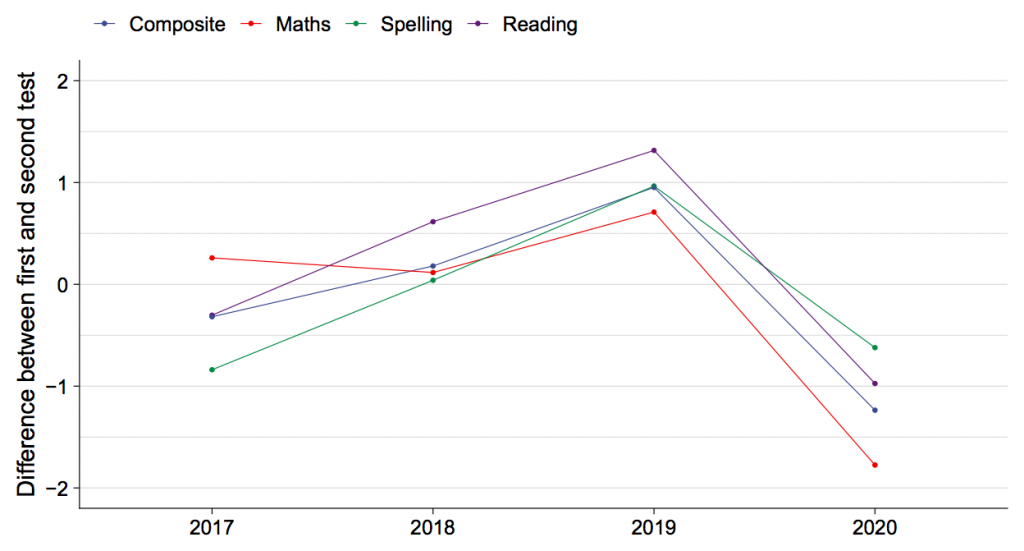Despite the fact that children face practically no risk from COVID-19, many countries closed schools in an attempt to suppress the epidemic. What effect did this have on children’s learning? According to a study published in Proceedings of the National Academy of Sciences, it may have had a sizeable negative effect.
The study was based on data from the Netherlands, where national examinations take place twice a year: first in January and then again in June. Because last year’s lockdown happened to take place between the two examinations, the authors were able to compare students’ progress in 2020 to their progress in previous years.
This is a more robust method than simply comparing students’ post-lockdown performance to their performance in previous years, since it controls for any changes that may have occurred within the school system between 2019 and 2020. For example, the students enrolled in 2020 might be slightly different from those enrolled in 2019.
The authors looked at math, spelling and reading scores, as well as a composite measure of all three, for students aged 8 to 11. Comparing scores between January and June, they found that students made considerably less progress in 2020 than in each of the three preceding years. Here’s one of their charts:

The learning loss was equivalent to one-fifth of a school year (roughly eight weeks), which means that students made essentially no progress under lockdown. In addition, the effect was 60% larger among students from less-educated homes, confirming that the costs of lockdown have fallen disproportionately on the working class.
As the authors note, their findings arguably reflect a “best-case scenario”, given that the Netherlands combines equitable school funding with high levels of broadband access, and the country’s lockdown only lasted eight weeks. Learning losses in other countries were probably even greater.
Stop Press: The authors of the study say their conclusions are applicable to English primary school children too.











To join in with the discussion please make a donation to The Daily Sceptic.
Profanity and abuse will be removed and may lead to a permanent ban.